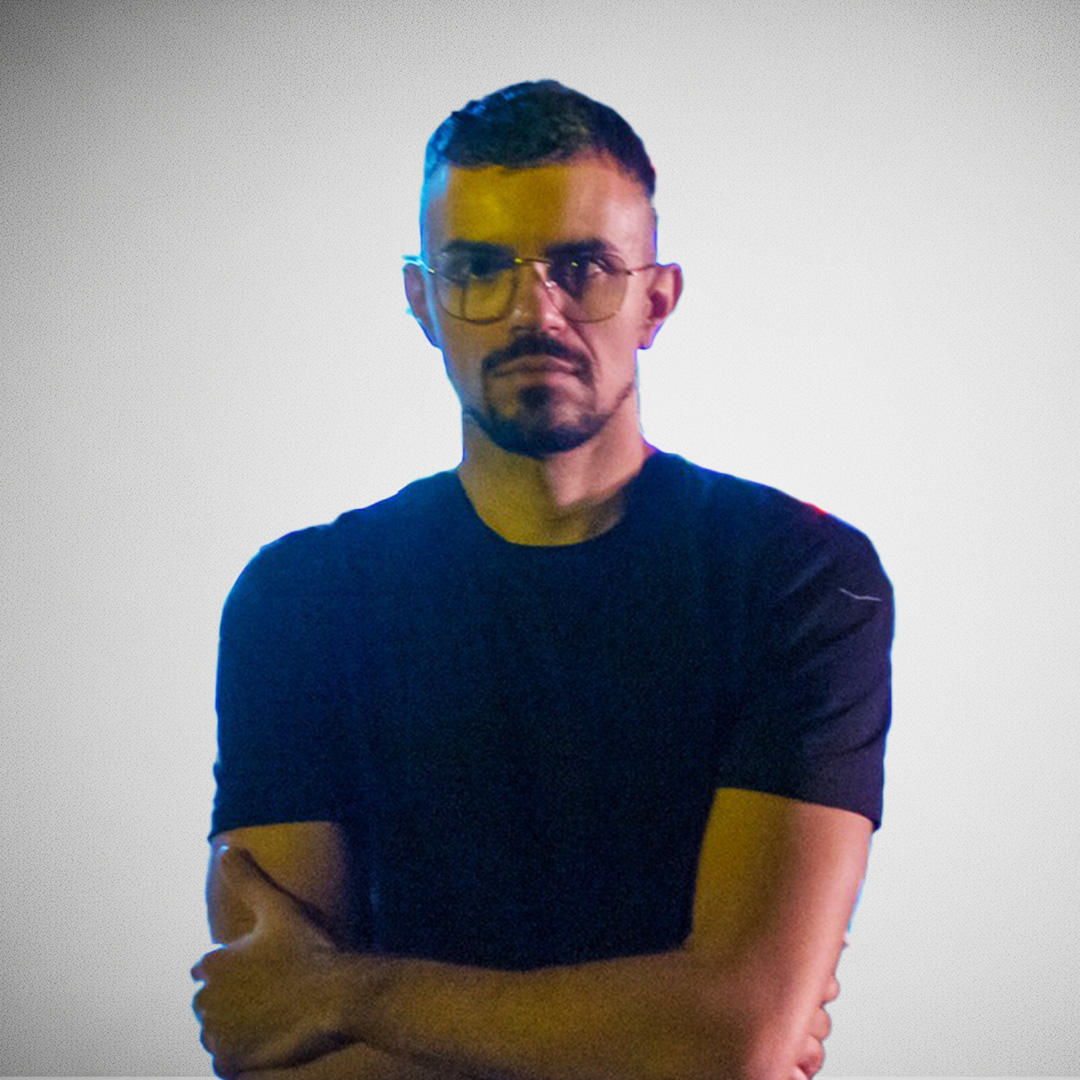Hollywood's AI revolution: Solo filmmaker delivers epic history doc in six weeks

Youcef Hollywood’s “Human History” demonstrates unprecedented production efficiency with 98% AI-generated content
Independent filmmaker Youcef Hollywood is set to demonstrate the transformative potential of AI-assisted production with “Human History,” a two-volume educational series that launched on YouTube in August. Hollywood’s latest project represents a significant milestone in independent production capabilities, delivering 24 minutes of content in just six weeks of intensive development.
The project showcases what single-operator productions can now achieve with current AI technology. Working entirely solo, Hollywood created approximately 98% AI-generated content, targeting teenage audiences and foundational learners seeking accessible historical education.
“You’ve never learned this much history this fast,” Hollywood explains of his approach. “In just 20 minutes, you time-travel through the epic story of humanity. From the first villages to great empires and revolutions. You’ll understand not just what happened, but why.”
Production model challenges industry timelines
Hollywood’s production methodology directly challenges traditional industry assumptions about development cycles and resource requirements. His business philosophy centres on aggressive timeline compression: “Delivering in one month just means that you spent 27 days sleeping or doing other things,” he states. “Delivering in seven days just means you spent six days sleeping or doing other things. So make everyone happy and get the work done NOW.”
This efficiency-first approach has informed his broader business model through InstaHollywood, a global media company founded in December 2021 that promises clients “the instant Hollywood look” with 24-hour turnarounds. Operating across Wall Street, Marbella, Dubai, London, Manchester, and Zurich, the company demonstrates scalable and rapid production capabilities that European clients have particularly embraced.
The model’s success stems from Hollywood’s early recognition of the potential of digital distribution. Born in Old Trafford, Manchester, and now based between the UK and Spain, he began creating promotional content for cities at the age of 14 in 2004. “I could publish and launch whatever I wanted, whenever I wanted, and it was instantly accessible to the entire world,” he recalls. “I found that fascinating and fulfilling.”
Educational background informs systematic approach
Hollywood’s analytical methodology derives from civil engineering studies at Loughborough University, completed in 2014. Notably, he selected the institution specifically for its gliding club and media facilities, rather than solely for its academic reputation, indicating an early integration of technical and creative interests.
After graduation, Hollywood created four targeted CVs for engineering, programming, tourism, and media sectors. His first position came through programming, where he worked directly with an entrepreneur, which led him away from traditional engineering into the creative industries without ever working professionally as an engineer.
Early projects demonstrated ambitious scope and international capability. As a student, he founded TEDxLoughborough in 2012, serving as both organiser and head of media production for the “Painting Humanity” project. The initiative produced six talk videos for the official TEDx YouTube channel, generating over 470,000 views in its first year. The legacy that he left at his university generated TEDx talk videos with millions of views in the following years.
International production credentials established early
Hollywood’s 2012 production of “Oran in Colour,” an inspirational tourism film for the Algerian city, established his credentials for complex international projects. Managing a 50-person crew from November 2011 to April 2012, he secured official authorisation from Algeria’s Ministry of Culture. He obtained government permits that allowed filming anywhere in the region for two weeks, with the assistance of police for traffic management.
Working before the widespread availability of drones, Hollywood hired a bucket truck to achieve essential aerial shots, demonstrating the resourcefulness that now informs his AI integration approach. The project’s approximately $500 budget covered props, food for extras, and mobile data for crew, establishing his efficiency-focused production model.
“You are a vessel filled with energy, and you need to use that to move the entire planet to your will,” Hollywood explains of international production management. This philosophy has fostered ongoing relationships with the project’s crew and government officials.

AI integration philosophy emphasises narrative primacy
Hollywood’s approach to AI filmmaking prioritises story development over technical novelty. The production required an investment of over $1,000, primarily in AI generation tools, demonstrating the accessible cost structure now available to independent creators. “The most time I spent on this production was actually writing,” he explains. “Writing, rewriting, researching, imagining how I want scenes to start and end, or blend together – what emotions I want the audience to feel.”
His experimental work includes “Top 25 Movie Moments… with Raccoons,” a notable example of AI-driven video storytelling that demonstrates his strategic use of algorithmic content generation. However, his documentary and interview work maintains a consistent focus on human subjects, including conversations with Rasheda Ali, daughter of Muhammad Ali, and MMA fighter Biaggio Ali Walsh, Muhammad Ali’s grandson.
“The AI generates perfect sound effects with the video, which saves so much time,” Hollywood notes of the practical benefits. “I just want to tell the story – I don’t really care about the technical details, as long as it all gets done.”
Market positioning targets educational gaps
“Human History” addresses specific market demand for digestible educational content. Hollywood’s target demographic – teenagers and foundational learners – represents an underserved segment requiring sophisticated production values combined with accessible presentation.
The project’s timing capitalises on increased audience appetite for quality educational content and growing acceptance of AI-assisted production. YouTube’s primary distribution platform, with secondary presence on X.com, maximises reach while minimising distribution costs.
Hollywood’s broader industry perspective emphasises the democratisation of production capabilities. “You don’t need big studios anymore, and you don’t need money,” he states. “You can now produce similar quality from home.” This philosophy positions individual creators as viable alternatives to traditional production structures.
Industry implications for independent production
The success of Hollywood’s methodology could signal broader shifts in production economics. His ability to deliver professionally competitive content through predominantly AI-generated approaches demonstrates potential cost structures that challenge traditional crew-based models.
“It’s allowed me, as one person, not to need the services of any professional industries,” Hollywood explains. “Don’t need CGI, special effects, 3D modelling – none of it. It can all be done now, at home, just by writing a few words.”
However, he maintains that technological capabilities serve narrative goals rather than replacing creative vision. “The technology literally doesn’t matter,” he emphasises, positioning AI as production enhancement rather than creative replacement. “It’s just a tool to achieve your goals.”
Future production expansion planned
Following the release of “Human History’s” Hollywood plans to expand the concept with a deeper exploration of specific historical periods and scientific topics. He intends to build a small team for future productions while maintaining an efficiency-focused methodology.
His long-term vision encompasses potential collaboration with major studios or streaming platforms, though with conditions. “I’d need a crazy amount of creative freedom,” he says. The requirement indicates confidence in his established production model and reluctance to compromise systematic approaches that have delivered consistent results.
Hollywood’s broader industry philosophy emphasises practical innovation over theoretical concerns about AI’s role in creative industries. “The biggest misconception people have about AI in filmmaking is that human creativity is now obsolete,” he states. His work demonstrates integration possibilities that enhance rather than replace human creative decision-making.
The August launch of “Human History” will provide concrete evidence of AI-assisted production capabilities in educational content markets. Hollywood’s systematic approach and proven international production experience position the project as a significant test case for independent creators seeking to leverage emerging technologies for competitive advantage.
Volume Two will follow within one week of the initial release, with timing dependent on audience response and demand patterns. The rapid follow-up schedule maintains momentum while allowing market feedback to inform distribution strategy.
For an industry increasingly focused on production efficiency and cost management, Hollywood’s methodology offers a practical demonstration of achievable timeline compression without compromising output quality. His success could lead to the broader adoption of AI-assisted production workflows across both independent and studio productions.





